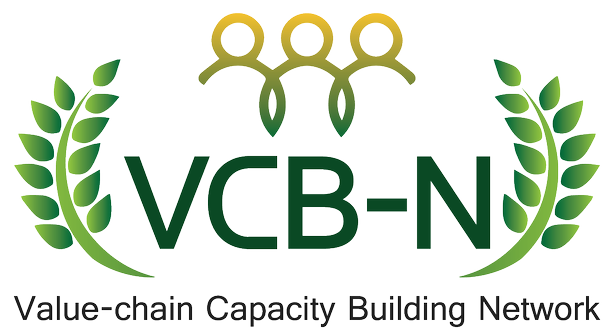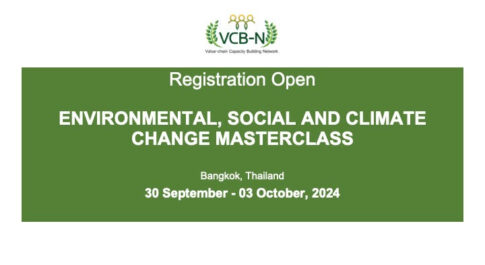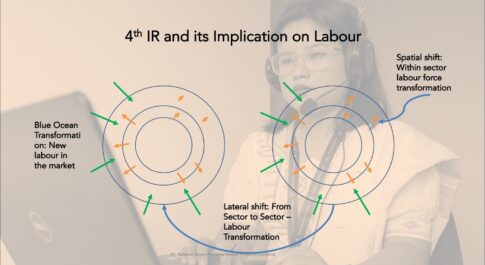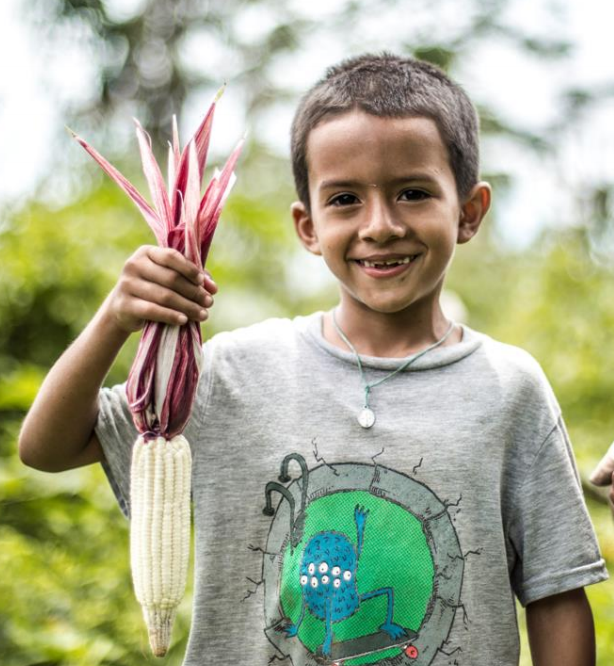
Good practice
Climate Smart Agriculture Practices in Battambang
The following good practice is conducted by Dr. Meas Pyseth. The case study was selected and presented in Mekong Knowledge and Learning Fair (IFAD) by representative from Cambodia.
(For presentation in the event, please click here)

Background
Climate Smart Agriculture (CSA) practices were introduced in several districts in Battambang, ASPIRE targeted province. Several training workshops were organized through Farmer Field Schools (FFS) that specifically aimed at: (a) enhancing the smallholder farmers’ knowledge about CSA technologies and practices through experiential and field learning exercises; (b) facilitating the sharing of knowledge and experiences on CSA technologies and practices among farmer beneficiaries of ASPIRE and CSA support teams from each participating District Agriculture Office (DAO); and (c) demonstrating community-based CSA approaches that are successful in Cambodian context.
The CSA training workshops thru FFS were organized in several selected districts of Battambang. The most successful one was undertaken in Sangkae district, wherein out of 5,964 farmers, there were 1,251 households or equal to 4,378 farmers (where 2,189 are female smallholders) who were provided training on agriculture, specifically on climate smart agriculture (CSA) practices.
The DAO has been undertaking the training on CSA practices since 2016, after the launching of ASPIRE in Battambang. Some of the CSA technologies and practices that were introduced during the training of farmer beneficiaries included the following: (a) climatic stress tolerant rice varieties; (b) water harvesting system; (c) ecological engineering; (d) plant clinic; (e) compost production; (f) integrated crop management; and (g) drip irrigation system. Additional trainings conducted to farmers came as a result of the Farmer Needs Assessment (FNA), which included livestock raising, rice growing, vegetable growing, and understanding market demand.
Innovations / Good Practices
The training course on Climate Smart Agriculture (CSA) technologies and practices is part of ASPIRE’s initiative to enhance the thorough understanding of smallholder farmers on CSA through experiential learning. The CSA experiential learning workshops that were organized among smallholder farmer beneficiaries in several villages in the districts also included village leaders in order to address challenges of food security through agriculture productivity, climate change adaptability and resilience, and mitigation of greenhouse gas emissions in the selected villages.
The CSA training program used knowledge-sharing and experiential learning methodologies thru field visits and Farmer-to-Farmer (F2F) learning from climate-smart farmers. Field visits were organized for the farmer participants to observe and reflect on CSA technologies and practices on the ground. The participants were exposed to FFS approach, community pond management, production and application of organic pesticide and fertilizers, intercropping of annual and perennial vegetables. Synthesis and reflection sessions were also done in every site visit in order for the participants to immediately process the learning/training they received. The participants were divided in small groups and were very proactive in sharing and discussing their ideas, experiences, and reflections.
Impact
- 1,251household’s farmers (where 674, are female smallholders) who were provided training on agriculture, specifically on climate smart agriculture (CSA) practices.
- Organized the first meeting to formulate smallholder learning group to address the ASPIRE Programme for six districts that were participated from farmers 5,641 participants including 3,541 women.
- Established 198 smallholder learning groups in which they voluntarily joined for 5,458 famers including 2,591 women.
- As observed, 144 smallholder farmers of former 2016 SLG in 12 target communes have improved their small farm business and they still have continuously adopted the improved agricultural technologies towards to resilient farm business (or commercial activity).
- The result of profit growth analysis presented that the net profit of 594 members (F:239) of SLG 2016 and 2017 in average increased 86.14 % as compared to non-project intervention including; i) rice (324 hhs, (F:120)) with 79.30%, ii) vegetable (91 hhs, (F:41)) with 117.07%, and iii) chicken (179 hhs, (F:78)) with 104.41% increased through adaptation of improved agricultural extension technologies including environmentally sustainable and climate-resilient technologies.
- Contracting-out/PPP: 30 demo- farmers/model farmers applied improved agricultural extension technology. The 480 households (96%) of 514 beneficiary households applied their learned knowledge and skill into their farms. As the result presented that the agricultural productions of smallholder farmer increased approximately 40% as compared to non-project intervention, and in average, the rice yield produced was 4,200 Kg per hectare
Facilitating Factors / Challenges
Some of the challenges that the farmers cited include access to capital in order to expand their production after learning the CSA technologies and practices. ASPIRE is looking at some possibilities to solve this issue by discussing with some prospective MFI partners in the province.
Lessons Learned
- Almost farmers are changing their attitude and behaviors as adapted the new technology and significant progress results that learnt from FFS training.
- Farmers have voiced to express their willing on agriculture productivities by joining with Farmer Needs Assessment (FNA).
- By doing field visit and seeing other farmer’s success, farmers feel more positive on their farming practices.
- CSA technologies and practices make farmer’s livestock constantly increased
- Some of farmers changed their traditional seed to use the good seeds for high yields and market demand.
Recommendations
- PDAFF Battambang should continue to facilitate for field visit to show the best practice on agriculture to all ASPIRE selected farmers.
- As the financial constraint still exist among farmer, PDAFF Battambang or ASPIRE keeps on tracking all possible Micro Finance Institute to work as partnership to provide loan with low interest rate to farmer.
- Programme should be considered to invest the capital for smallholder farmers to make the diversification of agriculture to increase the agricultural productivity for accessing to the market.
- Climate Smart Agriculture (CSA) Practice need to be oriented widely and used pompously in the province.
You may want to read








